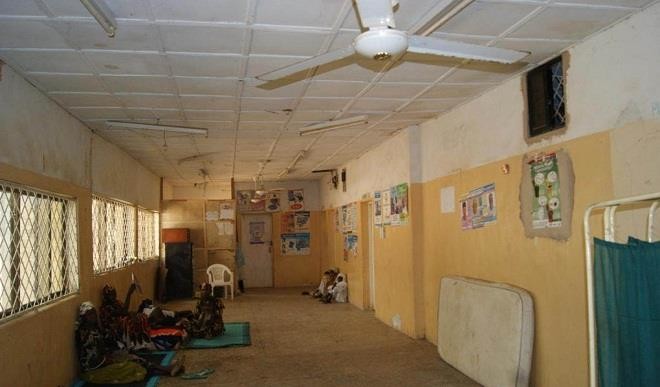The hidden hands behind health policies
Some make decisions and policies; others influence decisions and policies. In July, some 20 of them sat huddled in a horseshoe in a room in Keffi, Nasarawa and sharpened their action plan—the ammunition they will take into battle with state government. It isn’t just Nasarawa. Niger is also a target, as are Plateau and Benue. […]


Some make decisions and policies; others influence decisions and policies.
In July, some 20 of them sat huddled in a horseshoe in a room in Keffi, Nasarawa and sharpened their action plan—the ammunition they will take into battle with state government.
It isn’t just Nasarawa. Niger is also a target, as are Plateau and Benue. The goal is to influence policies toward primary health care in all the states. Influence on policies is big, and CSOs are riding the wave
“Last year, we made a 10-point agenda to reposition primary health care,” says Sunday Musa. “Financial autonomy is a major plank.”
A medical laboratory scientist, Musa has worked more than 20 years in HIV-integrated services. He is Plateau’s lone representative in the room, but he chairs a coalition back home that consist 24 civil society organisations.
They have united on primary health care under one roof—a reform that the federal government instituted. State governments are at different levels of implementing, and the National Primary Health Care Development Agency keeps score on its portal.
In Plateau and Benue, groups seeking to better primary health care want financial autonomy for the state Primary Health Care Development Board—and it is taking more than just courtesy visits.
“What we were doing was courtesy visit, not advocacy. Now I have begun to differentiate between them,” says Beatrice Onoja. She founded Glorious Teens Ministry in Benue and directs a coalition of civil society groups called Civil Society for Health Care Financing.
“The focus is financial autonomy. The target is to reach that goal of universal health care and strengthen primary health care, and this can only be done when the Primary Health Care Development Board is given that autonomy to fund primary health centres directly,” explains Onoja.
“And when it comes to funds, you know whom to hold accountable.”
Knowing whom to hold accountable comes from full study of the health landscape and targeted advocacy. Influencers in this sector have been dealing advocacy for years but just not in the new-approach ways Onoja and Musa are learning.
“Most of us learn advocacy on the job, just by associating with people who know some things and we pick knowledge here and there,” says Tunde Segun, country director of MamaYe-Evidence for Action, which has been training civil society groups in advocacy and policy influencing.
“We have come to give the principles, methodology, knowhow, the theory behind it, so that people can then relate to some of the things they were doing.”
From realizing a problem and crafting a message to mapping the policy landscape and developing an action plan, it is advocacy 101.
“But now they can put them in perspective,” says Fola Adewusi, advocacy campaign lead for MamaYe-Evidence for Action.
Take CLASP—it stands for credibility, legitimacy, accountability, service orientedness and power. Not just for a target but also for the person targeting.
“They use that to assess what they are doing. It helps them bring to the fore some of the things they’ve not paid attention to,” says Adewusi.
“We also are able to provide skills in stakeholder analysis which takes them further on some of the analyses they have been doing. So now they can prioritise their audiences to know where to dissipate energy based on time and resources available to them.”
This new-approach advocacy is about knowledge and packaging, increasing chances that targets could be reached, goals met and asks fall on listening ears. And it is at least one step in the door.
“The fact that I can push beyond where it is to bring this thing to the fore and let people begin to discuss it is part of the success,” says Segun. “You may not see it through, but you have started a process.”
But it is all about timing and going in prepared in hopes of success.
“You can only be very well prepared for a battle, but theres no assurance you will win the battle,” says Segun. “I’d rather go prepared for a battle than go haphazardly.”
CSOs have endeared themselves to state agencies, many regularly attend state meetings, a few have ended up on agency organograms. And their network is widening.
“One of the golden rules for CSOs in policy influencing is ‘never go alone’. The more people you have, the more power you wield,” says Adewusi.
Primary health care has nine pillars, according to the reform. The four states chose a pillar each to work on.
“And if those pillars become reality, you are looking at systems that will being to work better, that will have influence on technical ability of health workers, on them getting the necessary environment, equipment to work, having a system that flows,” says Segun.
Onoja is more interested in the outcomes. “When you talk of advocacy, you are looking at an area that’s not operational,” she says. “You look at all the stakeholders, and you pressure to make it realizable.”
What would be realizable would be financial autonomy for the primary health care board in Plateau and Benue states, something some other states don’t even have.
And for the past year, she and her coalition have been honing their policy-influencing skills. An action plan is on ground—and their influence is coming on to policies.
